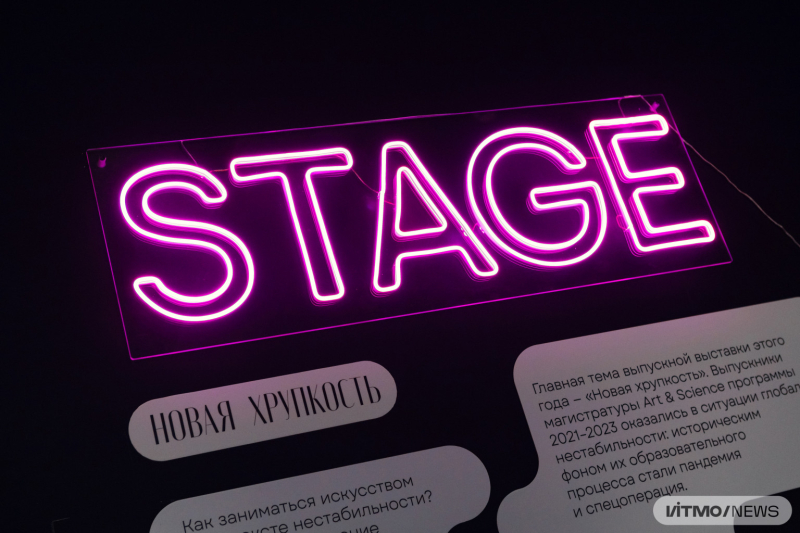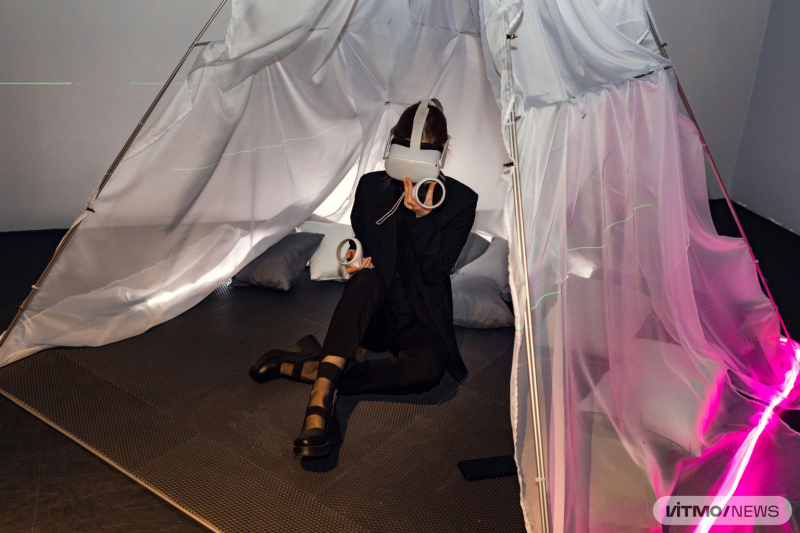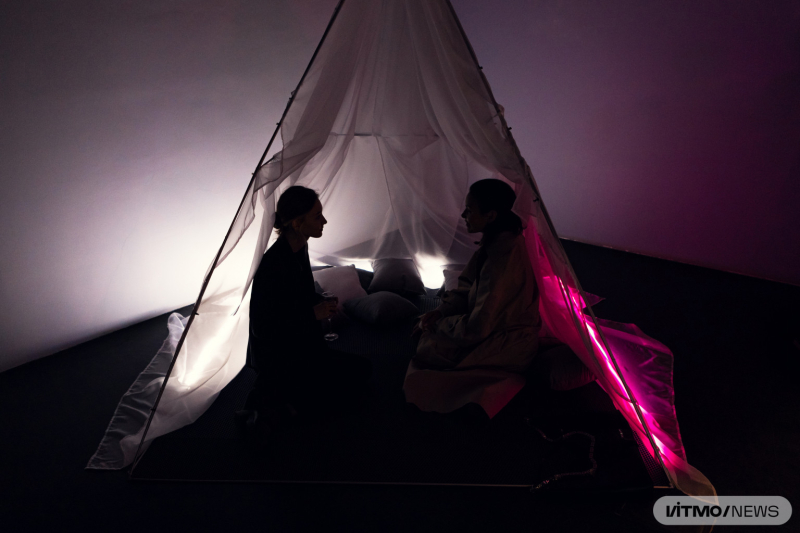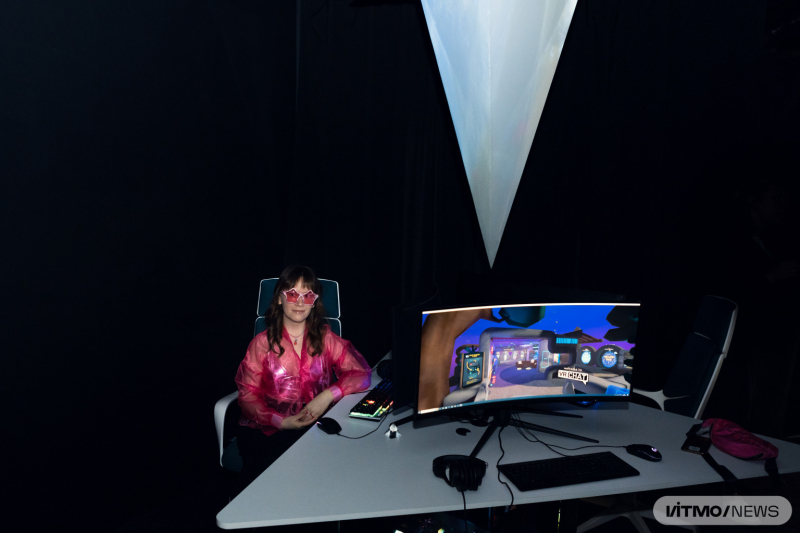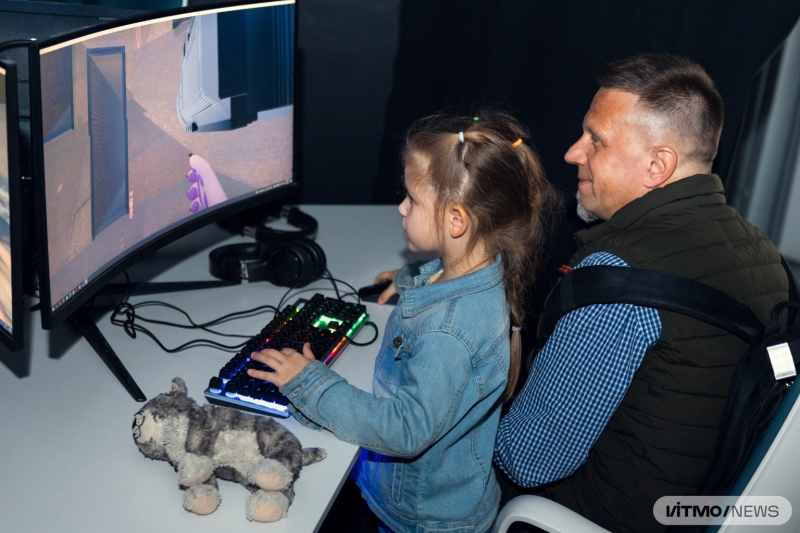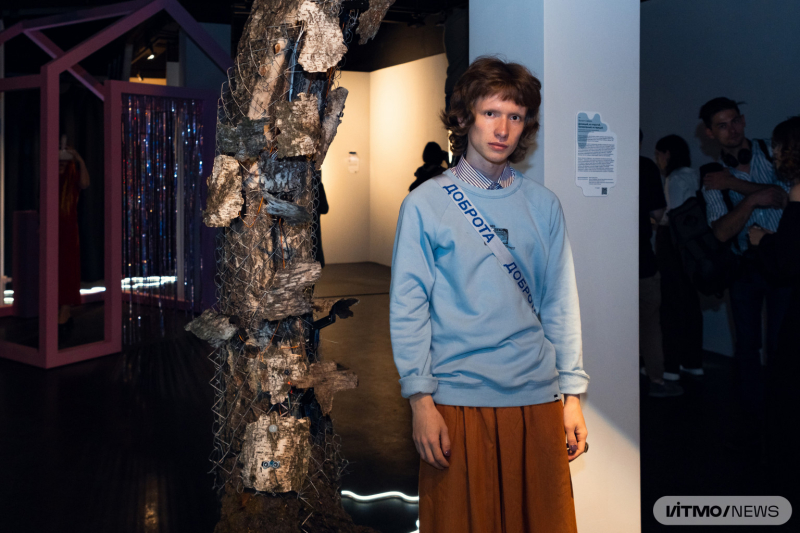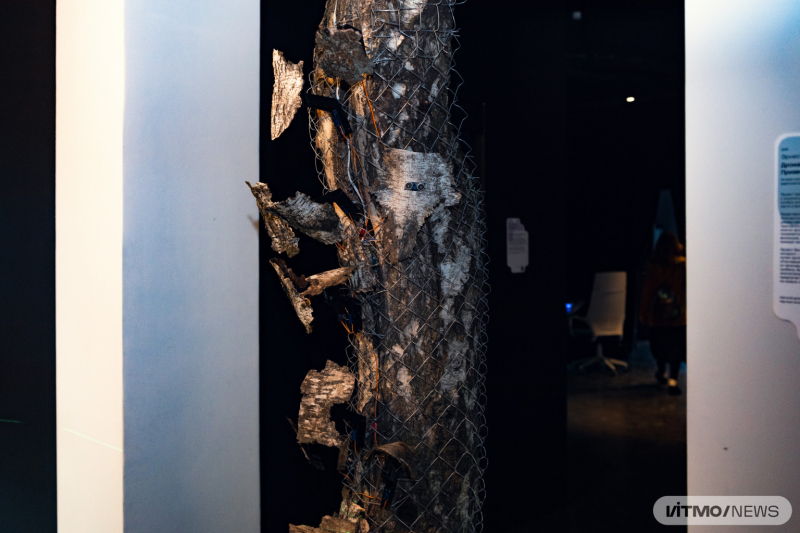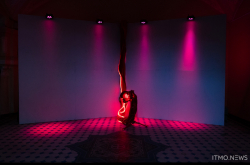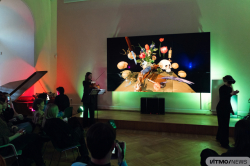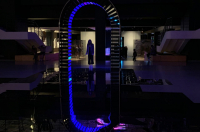STAGE is an exhibition of graduation projects created by students of ITMO’s Art & Science Master’s program. This year, 11 projects and a series of performances and educational events are all united under the title New Fragility.
“The term “new fragility” came about once we’d reviewed the submissions of our graduating students and the topics they wanted to explore. New fragility is about trying to find a way to make art in an unstable world as a creator who is emotionally drained. We sorted the topics the participants chose to focus on into three general categories: mental health, imperfect technologies, and interspecies communication,” explained Olga Vad, head of the Art & Science Master’s program, an independent curator, and the exhibition’s creative producer.
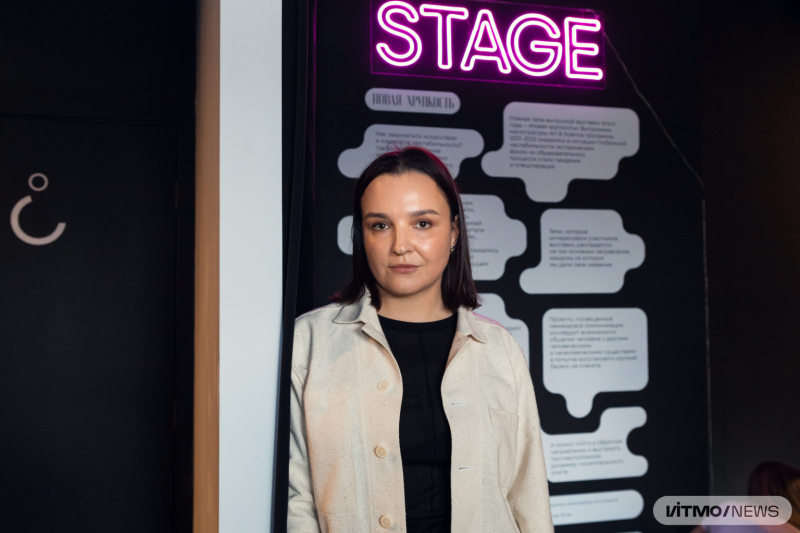
Olga Vad. Photo by Dmitry Grigoryev / ITMO.NEWS
Mental health
In this category, the authors strive to depict borderline states through artistic means, question the causes of mental issues, and seek unusual ways to find psychological balance and cope with anxiety.
One of the exhibits takes a look at the anxiety-depressive disorder. Created by Anastasia Kostina, it takes the shape of a pink house that visitors can step into; there, they can use a VR headset to see the world through the eyes of a person suffering from depression.
“The house is pink and sparkling to symbolize the fact that depression is often treated lightly – some even think it’s a form of attention seeking. In order to demonstrate what people with depression really feel, I conducted a clinical study and a series of interviews with people coping with anxiety-depressive disorder. I modeled an apartment with different rooms based on these interviews, and by stepping into them using VR, you can see how the world changes when you’re depressed. The objects around you become distorted, the walls fold in on you, and your head fills up with intrusive thoughts,” says Anastasia Kostina.
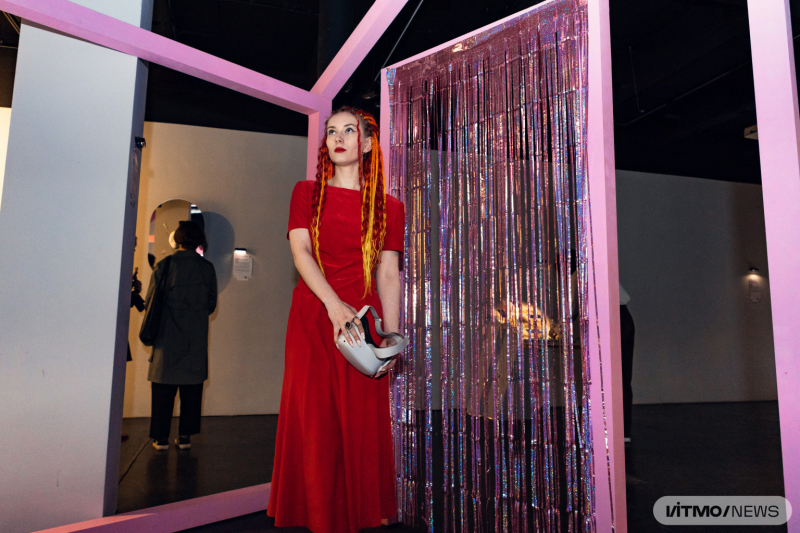
Anastasia Kostina. Photo by Dmitry Grigoryev / ITMO.NEWS
Safe Space, another art object in this category, was created by Daria Murashkina. Here, the artist tackles the issue of security in the metaverse. Based on her sociological study, Daria used neural networks to create a VR safe space featuring locations such as a surreal forest, a tea party, and others.
New technologies and their imperfections
Another group of artists considered the flaws of modern technologies.
For instance, in On the Other Side of the Metaverse, Daria Ivans examines the way software bugs can influence user experience. Her project includes three virtual spaces, each with a different feel of the metaverse: in one of them visitors have the chance to “break” the interface, while the other two will show the audience how to change a virtual space using the web design principles of the ‘00s.
Neuroplasticity by Daria Vysokova invites you to compare the work of a human brain under stress with that of a gadget. The installation presents an analog three-level neural network that consists of nine digital neurons, each of them made from components found on the street or in industrial warehouses.
The neural network imitates the work of a human brain under stress, demonstrating neuroplasticity – the brain’s capacity to form new connections between neurons. No such thing exists in the technological medium. The project provides a speculative look at the future of technologies, when our devices will develop neuroplasticity and will build new analog networks if subjected to stress.
“I got the inspiration for this project when I experienced the stress of breaking my phone. I was in a part of the city that I didn’t know that well and I didn’t know where to go. Things got even worse when I learned how much it would cost to repair the device. That’s what led me to study the stress we experience when interacting with technologies – or when they suddenly break,” explains Daria Vysokova.
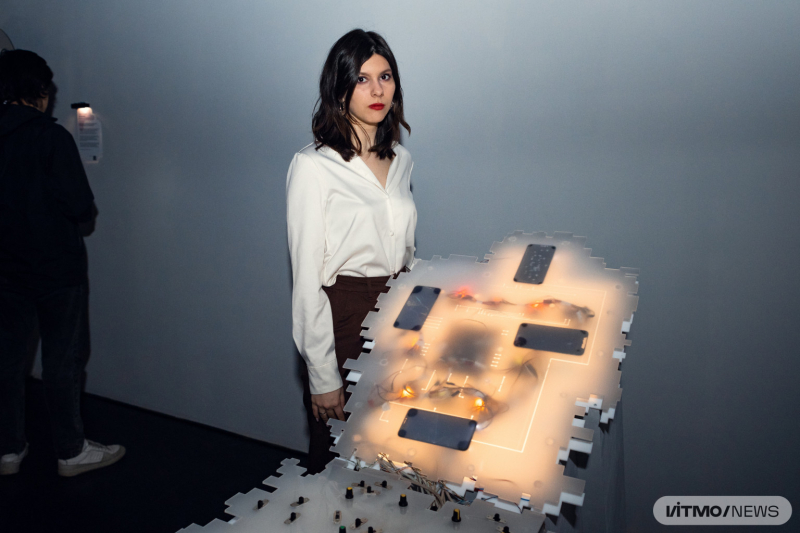
Daria Vysokova and her project Neuroplasticity. Photo by Dmitry Grigoryev / ITMO.NEWS
Communicating with people and plants
Projects in this category turn to human and interspecies communication in an attempt to establish some form of balance in a world that’s falling apart.
A kinetic sculpture of a dying tree with a prosthetic examines the way we interact with trees in urban environments. The metal armor of the fallen tree acts like protection from those who want to take the tree down.
“In this project, I want to raise the issue of a tree’s place in the city – and its personal choice of where to live or die. Usually, city dwellers or utility services view dying trees solely as a danger that needs to be excluded from the city. However, for environmental scientists and biologists, such trees are an important part of the ecosystem – they provide homes for microorganisms, insects, and birds; therefore, they have to be preserved. I want visitors to feel empathetic towards such trees, to treat them as individuals,” says Ernest Sairon, the author of the project.
Another project in this category, Dyslexic Territory, created by Ulyana Nazarenko, a graduate of the Science Communication Master’s program, explores the stigmatization of dyslexia. This piece is a panel with quotes from people with dyslexia, each with its unique typos. Another part of the exhibit contains audio recordings of stories from people with dyslexic thinking patterns. With such a personalized approach, the artist presents dyslexia not as an affliction, but as an idiosyncratic way to perceive and think.
Also on the program of the festival is In Learned Society, a theatrical piece by Ivan Zaslavets, a graduate of ITMO and a Golden Mask Award nominee. This is a new interpretation of Anton Chekhov’s short story Kashtanka, told from a dog’s perspective and with robot actors playing alongside humans. Visitors are welcome to watch the premiere performance and attend Ivan Zaslavets’ lecture on media and theater on June 3.
You can visit STAGE at Art.ITMO.Residency on Birzhevaya Liniya 16 until June 20. A schedule of art mediations and talks can be found on the center’s Telegram channel (in Russian). The exhibition is free of charge, but you need to sign up for a visit in advance here.
